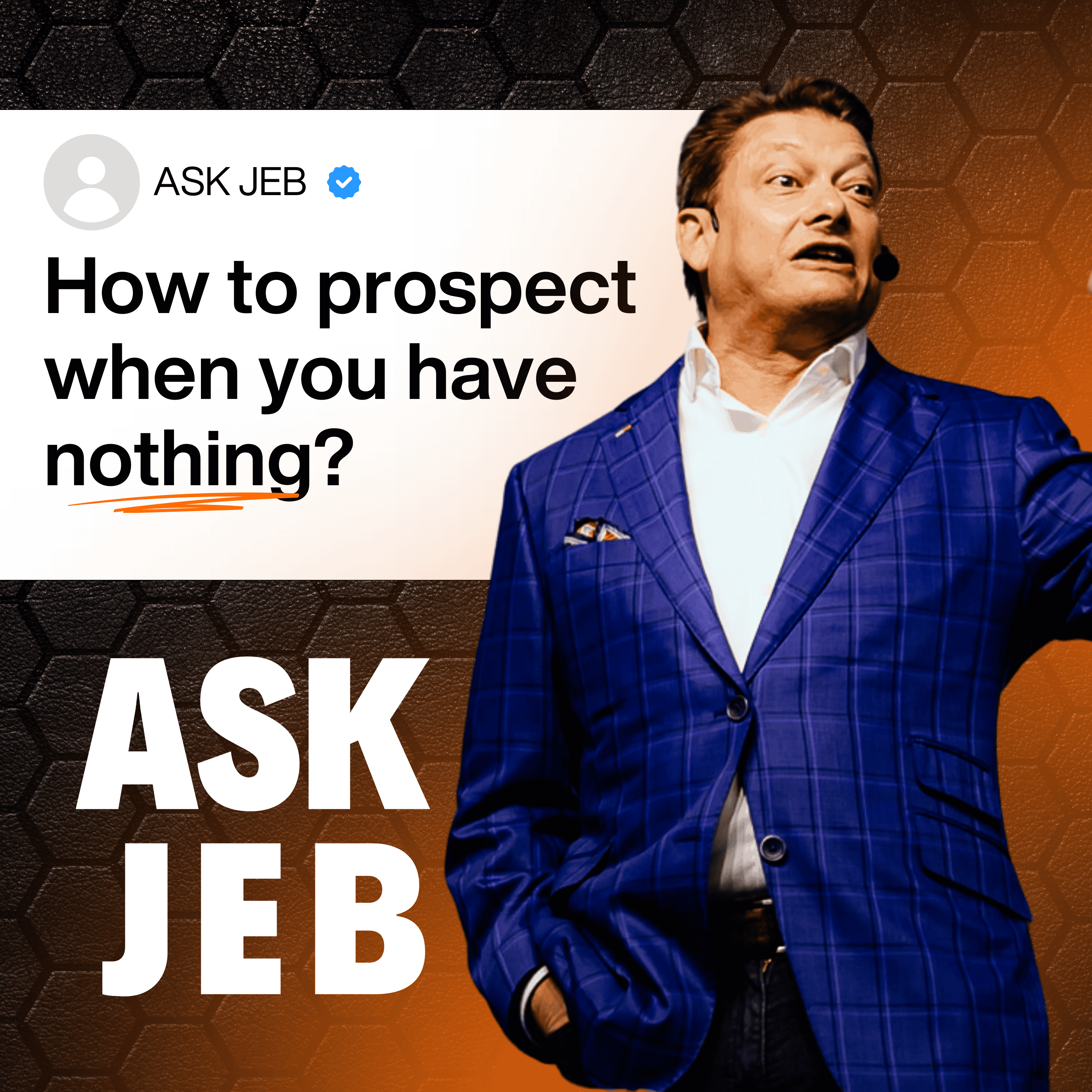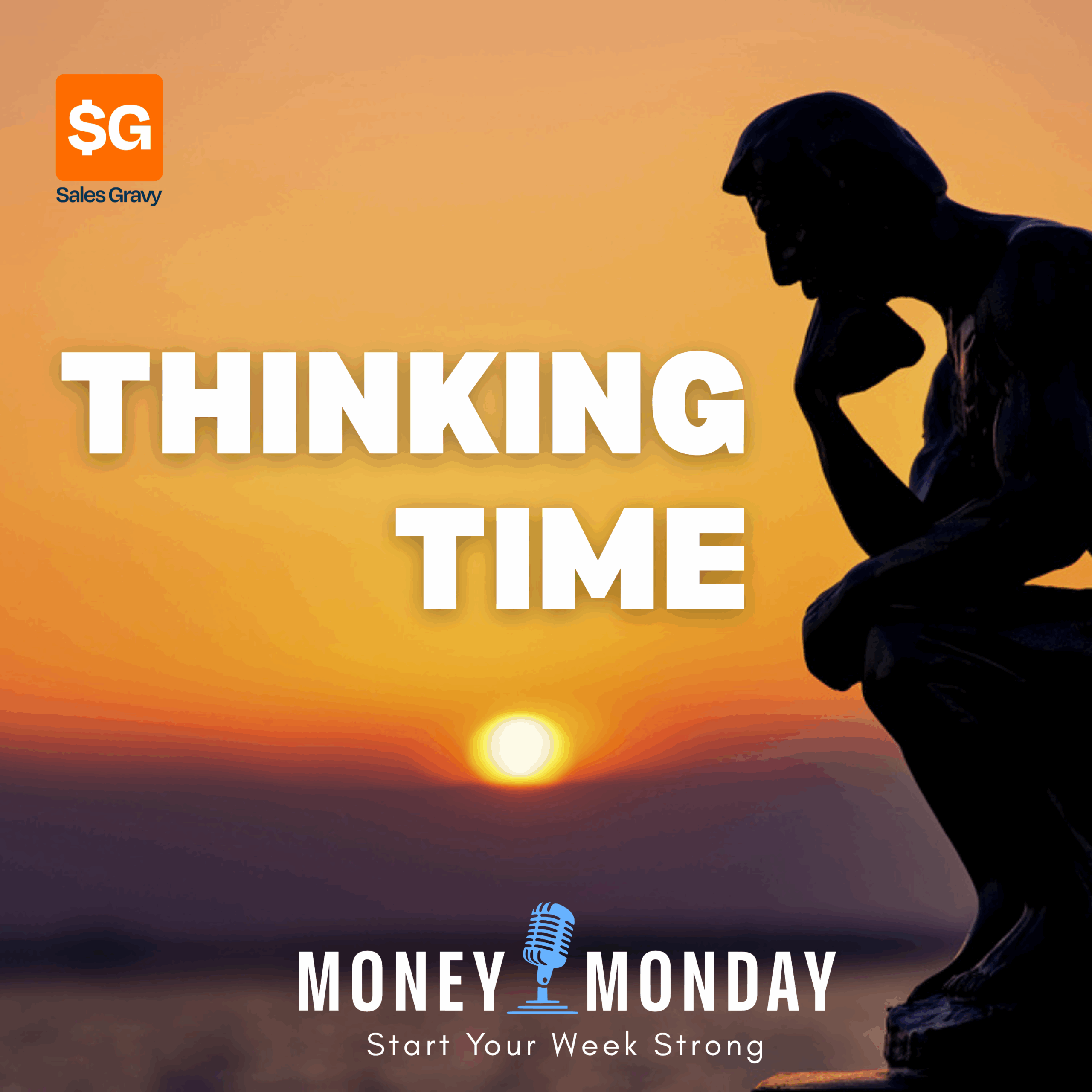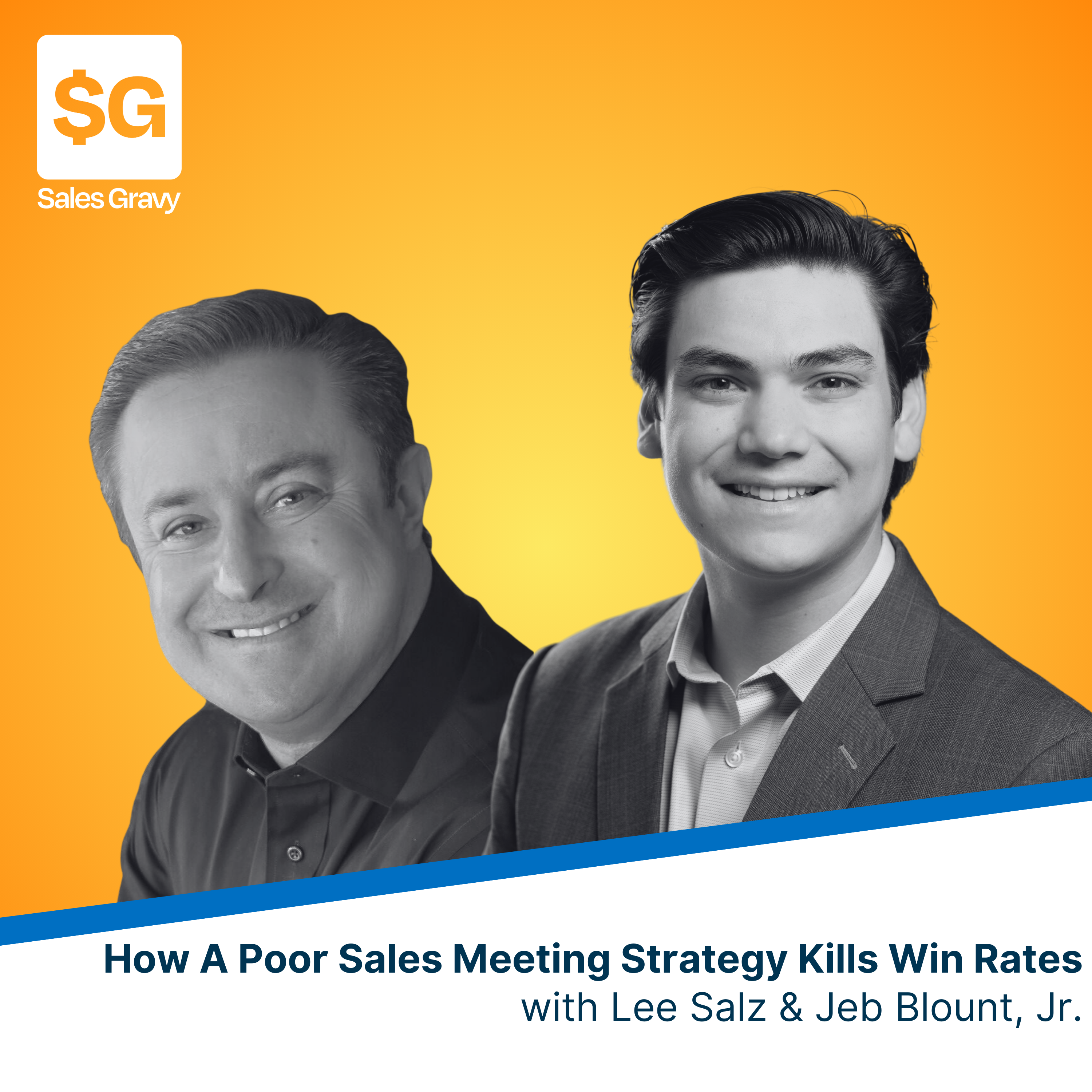The One-Question Revolution That Transforms Sales Discovery
Update: 2025-09-11
Description
What if one simple discovery question could close your next big deal?
Here’s the one I used: “Tell me what’s going on with your team?”
Then I shut up and listened. The buying committee talked, debated, and worked their way toward their own clarity. By the end of the call, they had essentially closed the deal for me. I barely said a word.
That’s not a fairy tale—it happened. And it proves why most sales discovery fails: reps focus on their checklist and pitch instead of helping the buyer gain clarity.
The Certainty Crisis Killing Your Deals
Dr. Lorenzo Bizzi joined The Sales Gravy Podcast and revealed a simple truth: Buyer uncertainty kills deals.
Traditional sales discovery often increases that uncertainty. Rigid qualifying questions, seller-centric agendas, and shallow data gathering make buyers feel misunderstood and cautious.
When you approach discovery this way, you’re eroding trust. Sure, buyers are evaluating your product—but they’re also evaluating whether you understand their world. And if you can’t help them gain clarity, even the best solution won’t move the deal forward.
The Science of Deep Sales Discovery
The most effective influence tactic isn't charm, rapport, or even product demos. It's clearly displaying the arguments and reasons why your solution works for their specific situation.
But you can't build rational arguments until you truly understand the problem. And you can't understand the problem until you master deep discovery.
Deep discovery operates on two levels:
The Organizational Level: What metrics matter to the company? What are the measurable business outcomes they're trying to achieve? What's the cost of inaction?
The Individual Level: What's at stake for each stakeholder personally? How will this decision impact their performance review, their standing with leadership, and their career trajectory?
Remember: Organizations don't make decisions. People do.
The Power of One Question
The most powerful discovery conversations start with one well-crafted, open-ended question that invites the buyer to tell their story—not your story about how great your product is.
The question I used—"Tell me what's going on with your team?"—worked because it was:
Open-ended, with no leading assumptions.
Centered on their world, not my product.
Neutral, without judgment or bias.
Broad enough to go anywhere.
When you ask the right question and then listen, the buyer starts convincing themselves. They begin connecting the dots between their current situation and what they need to change.
And here's the key: If the buyer says it, it's the truth. If you say it, you're just another salesperson spinning a pitch.
Cognitive Empathy Is The Difference Maker
Dr. Lorenzo Bizzi defines several types of empathy. But for salespeople, the distinction that matters is simple: affective empathy pulls you off course, while cognitive empathy keeps you sharp, connected, and in control.
Affective empathy—actually feeling what your buyers feel—will drain your energy and cloud your judgment. When they're frustrated, you get frustrated. When they're uncertain, you become uncertain.
Cognitive empathy is different. It’s the ability to recognize and understand what your buyer is feeling without taking it on yourself. You stay clear-headed and outcome-focused, while still connecting deeply with their situation.
In discovery, cognitive empathy shows up in the emotional nuance most salesp...
Here’s the one I used: “Tell me what’s going on with your team?”
Then I shut up and listened. The buying committee talked, debated, and worked their way toward their own clarity. By the end of the call, they had essentially closed the deal for me. I barely said a word.
That’s not a fairy tale—it happened. And it proves why most sales discovery fails: reps focus on their checklist and pitch instead of helping the buyer gain clarity.
The Certainty Crisis Killing Your Deals
Dr. Lorenzo Bizzi joined The Sales Gravy Podcast and revealed a simple truth: Buyer uncertainty kills deals.
Traditional sales discovery often increases that uncertainty. Rigid qualifying questions, seller-centric agendas, and shallow data gathering make buyers feel misunderstood and cautious.
When you approach discovery this way, you’re eroding trust. Sure, buyers are evaluating your product—but they’re also evaluating whether you understand their world. And if you can’t help them gain clarity, even the best solution won’t move the deal forward.
The Science of Deep Sales Discovery
The most effective influence tactic isn't charm, rapport, or even product demos. It's clearly displaying the arguments and reasons why your solution works for their specific situation.
But you can't build rational arguments until you truly understand the problem. And you can't understand the problem until you master deep discovery.
Deep discovery operates on two levels:
The Organizational Level: What metrics matter to the company? What are the measurable business outcomes they're trying to achieve? What's the cost of inaction?
The Individual Level: What's at stake for each stakeholder personally? How will this decision impact their performance review, their standing with leadership, and their career trajectory?
Remember: Organizations don't make decisions. People do.
The Power of One Question
The most powerful discovery conversations start with one well-crafted, open-ended question that invites the buyer to tell their story—not your story about how great your product is.
The question I used—"Tell me what's going on with your team?"—worked because it was:
Open-ended, with no leading assumptions.
Centered on their world, not my product.
Neutral, without judgment or bias.
Broad enough to go anywhere.
When you ask the right question and then listen, the buyer starts convincing themselves. They begin connecting the dots between their current situation and what they need to change.
And here's the key: If the buyer says it, it's the truth. If you say it, you're just another salesperson spinning a pitch.
Cognitive Empathy Is The Difference Maker
Dr. Lorenzo Bizzi defines several types of empathy. But for salespeople, the distinction that matters is simple: affective empathy pulls you off course, while cognitive empathy keeps you sharp, connected, and in control.
Affective empathy—actually feeling what your buyers feel—will drain your energy and cloud your judgment. When they're frustrated, you get frustrated. When they're uncertain, you become uncertain.
Cognitive empathy is different. It’s the ability to recognize and understand what your buyer is feeling without taking it on yourself. You stay clear-headed and outcome-focused, while still connecting deeply with their situation.
In discovery, cognitive empathy shows up in the emotional nuance most salesp...
Comments
In Channel
























